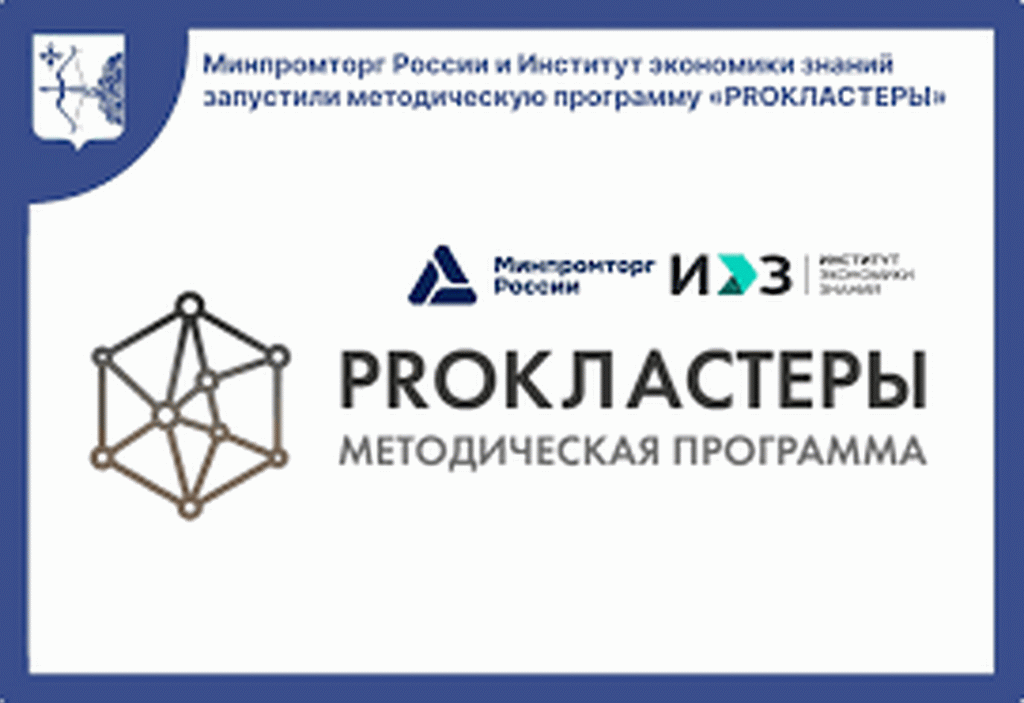PRO CLUSTERS
The management team of the Kurgan region participates in the Methodological program of the Ministry of Industry and Trade of Russia "PRO CLUSTERS"On March 19, 2025, the fourth stream of the methodological program of the Ministry of Industry and Trade of Russia "PRO CLUSTERS" was launched, implemented by the Institute of Knowledge Economics with the support of the Association of Clusters, Technoparks and SEZs of Russia. The program participants included the management team of the Kurgan region.This year is a record year in terms of the number of participants. 195 participants from 55 regions of the Russian Federation will learn how to create and develop industrial clusters. The management team from the Kurgan region included:- Alexey Pavlovich Cherepanov – Deputy Director of the Economic Development Department of the Kurgan Region - Head of the Department of Industry and Transport;- Igor Petrovich Enbaev, Director of the Kurgan Joint–Stock Company, RTMT LLC.Participants of the PRO CLUSTERS program will have practice-oriented webinars on the creation and development of industrial clusters, regular consultations of teams with experts, and defense of cluster creation projects in Omsk in July 2025.Based on the results of the methodological program, the team will present a project to create an industrial cluster "Armature cluster", which will include at least 5 industrial enterprises.Dmitry Korolev, Deputy Director of the Department of Regional Industrial Policy at the Ministry of Industry and Trade of the Russian Federation, stressed the importance of the program for the development of industrial infrastructure in the regions of Russia:"The program is aimed at providing comprehensive support to management teams, which will allow regions to make better use of government support mechanisms, develop cooperation and attract investment. We see great interest from the participants and expect that the projects presented for protection will receive support at the federal level."The creation of industrial clusters makes it possible to ensure the production of import-substituting industrial products, reduce the dependence of industrial enterprises on foreign components, create new jobs, and ensure a budgetary effect.

